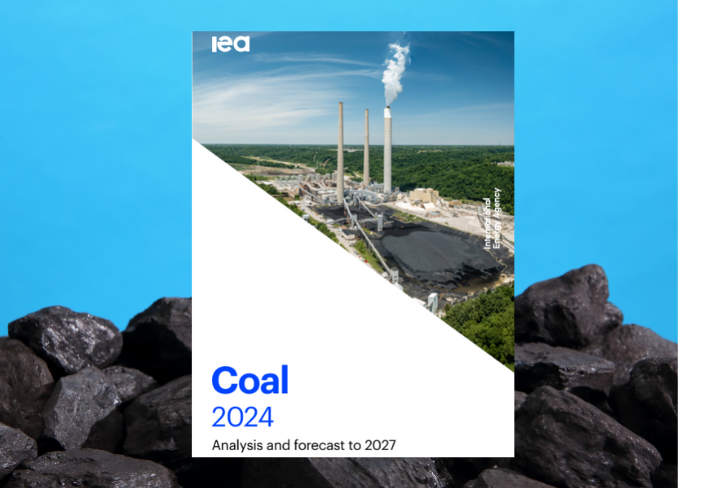
Energy Debate Falling Into Alternative Reality
Michelle Manook
Watching the Meghan and Harry documentary, and its accompanied public relations pandemonium, I have wondered who or what to believe.
I found the insidious social media phenomena surrounding it concerning, blurring the lines between reality and a fabricated reality we seem to be increasingly bombarded with.
So what does this have to do with the globally fractious energy transition debate, and how climate change and coal are affected? Everything.
For more than three years, across hundreds of meetings, interviews and speaking engagements, I have joined a vocal few who have publicly underscored the need for energy security, supply diversity, reliability and affordability.
We have been demanding that economies balance development and decarbonisation goals and be inclusive in deploying abatement technologies across all fuels and sources. But I bet you didnt hear, see, or read a lot of that. This is the reality.
Today, we are living amid a real-life energy and climate crisis, and its not a simulation exercise, although I often compare it to that. If you dont understand this or know what is coming, you are already falling behind.
That fact that the UK branch of Extinction Rebellion admitted that radical disruption achieved nothing was a mature admission or an overdue awakening.
Thats because climate change awareness and any energy transition are neither solved nor educated through stunts that have proven to disrupt the lives of ordinary citizens going about their daily lives.
Instead, it is a serious contemplation and inclusion of the climate facts, which must examine the necessary compilation of fuels, the various strengths and limitations of decarbonisation technologies, the market dynamics of supply, demand and price, the role of adequate and available agnostic investment, policy roadblocks, blackouts, and geopolitics.
And heres the rub its about how this affects peoples lives and livelihoods. This is the job I have. It affects the energy bill you and I need to pay, the vulnerable in society and the billions for whom life continues without basic human requirements clean water, food, electricity, and employment. I constantly ask myself if we willingly abdicated the decisions about our lives, livelihoods, and futures to activists who demonstrate little to no knowledge of these interrelationships and complexities.
When did gluing yourself to a painting become a helpful climate change solution? No, its worse, we allowed climate to be politicised by the Global North. For some major corporates, falling behind was easier than going to battle every day. Now, they are being accused of greenwashing.
Sadly, we started to define media as leftist or rightist, not expecting a balanced and moderate view of one of the most critical issues of our time. We fell into creating conflict and strongarming developing and struggling countries to consensus and forcing upon them the solutions afforded by the wealthiest nations.
A public flogging ensued. It was predicated on killing all fossil fuels at any cost and replacing them with renewables at any price. Hows that blind conviction working for us now?
So politicised has the climate and energy debate become, energy supply and security is now back as the number one consideration for every nation. But it should never have slipped off or down the list.
And this has only occurred because renewables, as good as they are, have failed to provide the continuous, reliable and affordable energy security that was always envisaged.
And this solution also raises its fresh suite of energy security, affordability and environmental issues.
Ask yourself this: Where will these minerals come from? Who owns them? Who owns the processing of them? What is their life cycle carbon footprint?
So, Harry and Meghan aside, we find ourselves here, at a new normal. Coal plants are being reactivated across Europe, coal imports are being ramped up across Southeast Asia, and coal technologies are being added to the arsenal of decarbonisation solutions which are readily available from carbon capture and storage to coal gasification and all the products that can be created from it, including coal-to-liquids, coal-to-hydrogen and coal-to-ammonia the latter, so essential to food production.
There is no single silver bullet to a prudent decarbonised energy policy. But it is unclear to me if Australia knows that. Home for the holidays, the barbecue chat doesnt reveal any kind of dawning about whats happening overseas, nor its effect once it truly infects.
Ive seen this complacency before. Its linked to our abundant national resource endowment and a view that major economies need us.
When the fog of price caps and super-profit levies lifts, which will distort the Australian energy market for a short time and disincentivise investment for a long time, we will be reminded that we are part of a globally interconnected supply chain.
There will be an impact on Australian communities and jobs, and it will reveal that households will see an estimated 12 per cent of their disposable income swallowed up by energy bills. We will, at some point, be left with what the rest of the world is already scrambling to try and work out the effects of high inflation and rising interest rates, and for how many years? And for what sacrifice and for how long?
Trillions have been invested in a renewables-only solution. Thats probably your superannuation or government subsidies which are at risk of eroding during times of high inflation. However, sound energy transition planning has suffered underinvestment. The evidence of this is the here and now. At the outset, let me say we need everything all fuels and all technologies and this is not new. Its all about inclusion, just as the Paris Agreement intended.
The walk back from populist principles and passionate precepts is more than a lesson in how not to lose face its a genuine moment of pause to address the reality.
*First published in The Australian on 12 January 2023*


